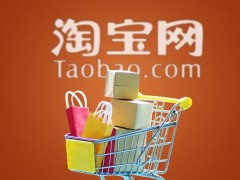atob business model?
五种常见toB商业模式
第一、平台型业务
向企业售卖平台的资源
平台型业务主要是依托优势,向平台上的玩家提供需要的资源。这类平台型业务模式,对B端用户的吸引力主要是平台所拥有的资源,在大多数情况下,这个资源主要指平台拥有的流量、用户量以及影响力。
像大型的商业媒体网站就是平台型业务,他们的优势资源就是强大的内容生产能力,吸引了广泛的受众人群,从而树立了自己的媒体影响力。那么作为媒体的资源优势,他们的变现能力就显而易见,因此卖广告便成为媒体最主要的业务收入来源之一。
另外像大型的B2B网站,或者垂直电商网站,以及垂直门户和本地生活类网站,以及大型的网络社区平台都属于平台型业务,要么撮合企业与企业之间的交易,要么企业通过平台资源获取和传递有价值的信息,所以,很容易理解这样的是to B平台型业务。
那么B2C网站是不是to B业务呢?企业在平台上开店,把东西卖给个人,平台对企业端的运营是to B业务,邀请企业入驻平台,通过各种活动和机制帮企业更好的卖货,但同时也是to C的业务,要面向个人推广平台品牌,让用户使用平台,并且用各种手段让用户买到更好的商品,提供更好的体验。
第二、产品型业务
向企业售卖相对标准的产品
不同于平台型业务模式业务,产品型业务模式则是为企业提供以标准化的产品,从而达到服务企业的目的。产品型业务与平台型业务的区别在于,提供给用户的价值是来自产品本身、还是来自于产品所带有的资源。
比如说,像阿里巴巴和天猫这样的网站,我们将它定义为平台型产品,用户每年向网站支付开店的费用,购买的是获得天猫用户资源的权利,而不是在天猫上开店的功能;而天猫商家可以通过阿里妈妈投放广告,通过阿里云购买域名、部署服务器,这些都是无形的产品,我们将其称为DMP、LaaS、SaaS等产品,企业付钱并没有购买到实际的东西,但购买到了营销推广平台、云服务器、物流系统的使用权,这就是“软件即服务”的业务模式。
另外像一些OA、CRM等企业管理软件,都是提供给企业的标准化软件产品,也是属于产品型业务。有一些喷着香水闻不到的空气,有一些在写字楼里永远遇不见的人。
第三、服务型业务
向企业售卖定制化的服务
服务型业务类型从具体的服务方式上来说,又可以分为2种,一种是以产品为媒介,典型的像SaaS产品,SaaS本身也是软件即服务的业务模式;另一种是以人力为主要服务媒介,典型的像4A广告公司、咨询公司、人力外包公司、猎头公司等,企业用户花钱买到的,其实是其他公司的人力资源来为自己工作的权利。
这两种服务型业务的区别在于服务的形式上,SaaS业务通过软件工具为企业提供服务,广告公司通过自己的员工为企业提供服务。而逐渐的,这两种业务形式有融合的趋势,以产品为媒介的服务形式会成为未来几年的重要发展方向。有一些穿高跟鞋走不到的路,有一些喷着香水闻不到的空气,有一些在写字楼里永远遇不见的人。
第四、硬件型业务
围绕生产供应链的企业服务模式
所谓硬件业务,就是指实体产品业务,比如说卖自行车轮胎、烤面包机、交换机路由器等供应链上下游的产品。假如你是一个生产自行车轮胎的厂家,在没有互联网之前,如何把更多的轮胎卖给生产自行车的厂家?我猜,你大概只有地推、参加展会找厂商等为数不多的几个线下渠道。
这种企业与企业之间的商品售卖,其实就是“企业服务”最原始的概念。而互联网的出现,为这种原始的企业服务模式带来了新的变革。现在,你可以把自己生产的轮胎直接放在阿里巴巴网站上售卖,通过这种方式,让更多自行车厂商可以了解到你,进而对你产生兴趣,开启后续的交易。从获客环节上来说,互联网提供了新的营销渠道和售卖方式,也因为售卖方式的变化,对生产环节、供应企业间的协作流程都提出了新的要求。
第五、解决方案型业务
提供定制化的企业业务模式
解决方案型业务是一个比较综合的业务形态,没有严格的界限和划分,一般情况下是根据实际需求进行定制,制定针对性的解决方案,然后再进行交付和实施。
一个解决方案里面有可能只包括了软件产品,也有可能包含了硬件,也有可能是平台、产品、服务、硬件的有机组合,所以比较复杂,是比较庞大,一般成本和造价也比较高。比如现在比较火的智慧城市的建设就是很典型的解决方案型的业务。
Professional answer
Five common toB business models
First, platform-based business
Selling platform resources to enterprises
Platform-based business mainly relies on advantages to provide the required resources to players on the platform. This type of platform-based business model is mainly attractive to B-side users because of the resources owned by the platform. In most cases, this resource mainly refers to the traffic, user volume and influence owned by the platform.
Large-scale commercial media websites are platform-based businesses. Their advantageous resources are strong content production capabilities, which attract a wide range of audiences and thus establish their own media influence. As a resource advantage of the media, their monetization ability is obvious, so selling advertisements has become one of the main sources of business income for the media.
In addition, large B2B websites, vertical e-commerce websites, vertical portals and local life websites, and large online community platforms are all platform-based businesses, either matching transactions between enterprises or enterprises obtaining and delivering valuable information through platform resources. Therefore, it is easy to understand that this is a to B platform-based business.
So is the B2C website a to B business? Enterprises open stores on the platform and sell things to individuals. The platform's operation on the enterprise side is a to B business. It invites enterprises to join the platform and helps enterprises sell better through various activities and mechanisms. But it is also a to C business. It promotes the platform brand to individuals, allows users to use the platform, and uses various means to allow users to buy better products and provide a better experience.
Second, product-based business
Selling relatively standard products to enterprises
Unlike the platform-based business model, the product-based business model provides standardized products to enterprises, thereby achieving the purpose of serving enterprises. The difference between product-based business and platform-based business is whether the value provided to users comes from the product itself or from the resources brought by the product.
For example, websites like Alibaba and Tmall are defined as platform products. Users pay the website a fee to open a store every year. What they buy is the right to obtain Tmall user resources, not the function of opening a store on Tmall. Tmall merchants can place advertisements through Alimama, purchase domain names and deploy servers through Alibaba Cloud. These are intangible products. We call them DMP, LaaS, SaaS and other products. Enterprises do not buy actual things when they pay, but they buy the right to use the marketing promotion platform, cloud server and logistics system. This is the "software as a service" business model.
In addition, some enterprise management software such as OA and CRM are standardized software products provided to enterprises, which also belong to product-based businesses. There are some air that cannot be smelled even if you spray perfume, and some people you will never meet in an office building.
Third, service-oriented business
Selling customized services to enterprises
Service-oriented business types can be divided into two types in terms of specific service methods. One is to use products as the medium, such as SaaS products. SaaS itself is also a software-as-a-service business model; the other is to use human resources as the main service medium, such as 4A advertising companies, consulting companies, human resources outsourcing companies, headhunting companies, etc. What corporate users pay for is actually the right of other companies' human resources to work for them.
The difference between these two types of service-oriented businesses lies in the form of service. SaaS business provides services to enterprises through software tools, and advertising companies provide services to enterprises through their own employees. Gradually, these two business forms have a trend of integration, and the service form with products as the medium will become an important development direction in the next few years. There are some roads that cannot be walked in high heels, some air that cannot be smelled with perfume, and some people who will never meet in office buildings.
Fourth, hardware business
Enterprise service model around production supply chain
The so-called hardware business refers to the physical product business, such as selling bicycle tires, toasters, switches, routers and other upstream and downstream products of the supply chain. If you are a manufacturer of bicycle tires, how to sell more tires to bicycle manufacturers before the Internet? I guess you probably only have a few offline channels such as ground promotion and participating in exhibitions to find manufacturers.
This kind of commodity sales between enterprises is actually the most primitive concept of "enterprise service". The emergence of the Internet has brought new changes to this primitive enterprise service model. Now, you can sell the tires you produce directly on the Alibaba website. In this way, more bicycle manufacturers can learn about you, and then become interested in you and start subsequent transactions. From the perspective of customer acquisition, the Internet provides new marketing channels and sales methods. Because of the changes in sales methods, new requirements have been put forward for the production links and the collaboration process between supply companies.
Fifth, solution-based business
Provide customized enterprise business model
Solution-based business is a relatively comprehensive business model, without strict boundaries and divisions. Generally, it is customized according to actual needs, and targeted solutions are formulated, and then delivered and implemented.
A solution may include only software products, or hardware, or an organic combination of platforms, products, services, and hardware. Therefore, it is relatively complex and large, and generally has high costs and construction costs. For example, the construction of smart cities, which is currently popular, is a typical solution-based business.
Similar Q&A
recommend What is the name of Alibaba's artificial intelligence?
E-c News Continuously pushing e-commerce knowledge to you








Latest Q&A More
-
Do I need a trademark to open a franchise store on Pinduoduo to sell books?
#Pinduoduo#
-
How to withdraw from a Pinduoduo store
#Pinduoduo#
-
How to withdraw from Pinduoduo merchants
#Pinduoduo#
-
How to pay fees when closing a Pinduoduo store
#Pinduoduo#
-
How to withdraw from Pinduoduo
#Pinduoduo#
-
Which store on Pinduoduo is authentic?
#Pinduoduo#
-
Which stores on Pinduoduo can buy genuine products?
#Pinduoduo#
-
How to check the store under Pinduoduo
#Pinduoduo#
-
How to receive Pinduoduo online game products
#Pinduoduo#
-
How to sell the electronic version on Pinduoduo
#Pinduoduo#
E-c News 2026-02-28 18:57:19

- African netizens use China Africa cross-border e-commerce platform for online shopping
- how is the new seller of cross-border e-commerce doing?
- how can cross-border e-commerce Amazon sell on Amazon platform without goods?
- Amazon store opening process and cost analysis!
- Amazon plans to expand its pharmacy business on a large scale and will add same day delivery service
